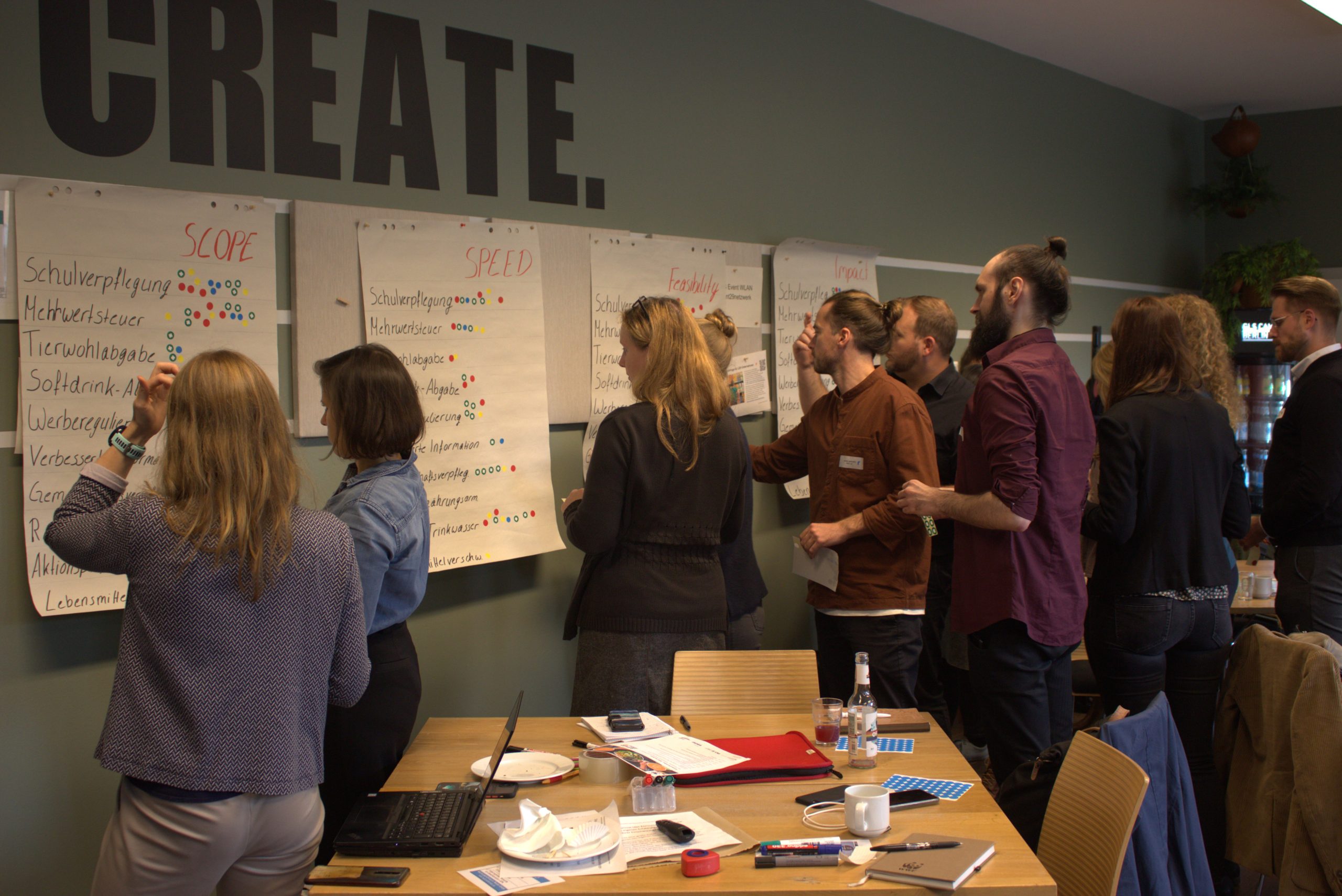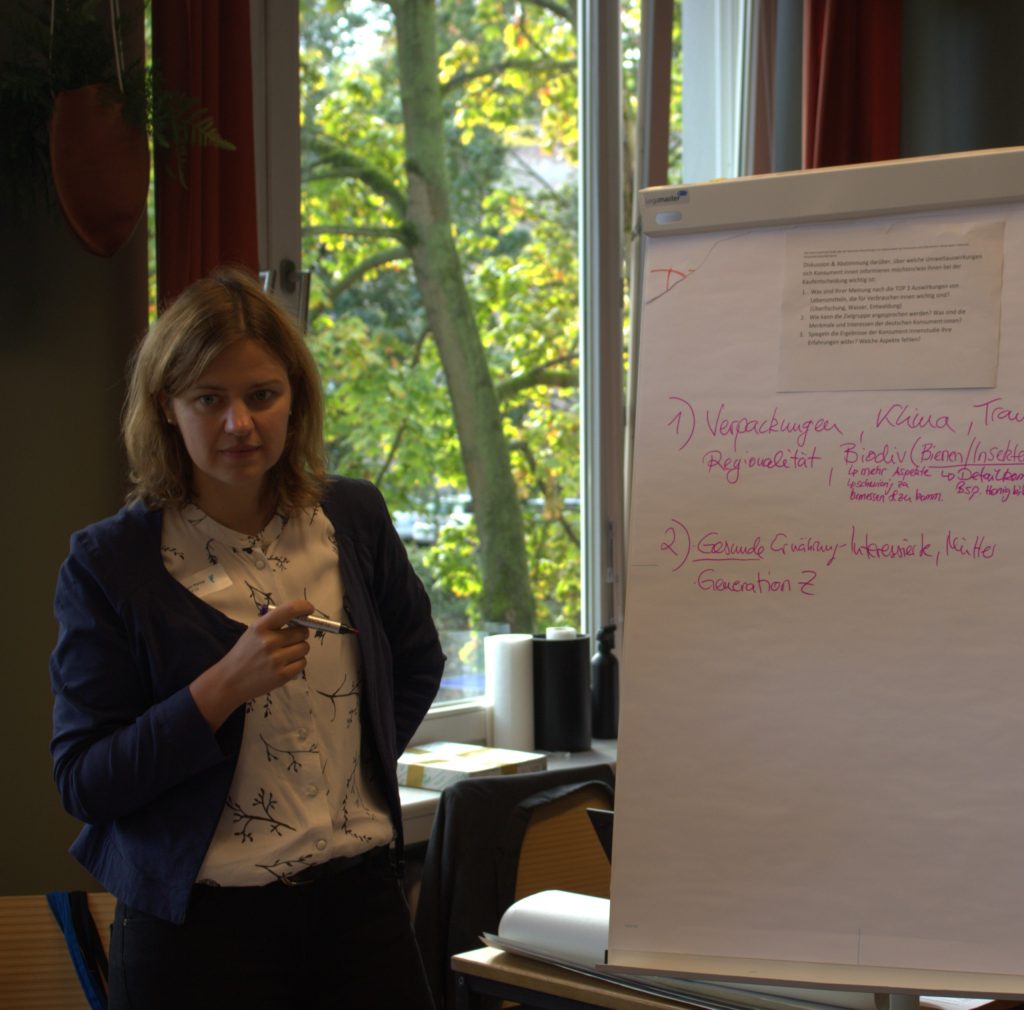The third CLIF stakeholder workshop as part of the workshop series by WWF was conducted in Berlin. As part of the Climate Impacts of Food (CLIF) project, a whole day of discussions with German stakeholders was convened on the 10th of October 2023. Participants included representatives from the German government, parliament, civil society, retailers, and science. The workshop was conducted by WWF Germany.
The objective of the workshop was to engage in discussions regarding the specific environmental impacts that should be communicated as part of the CLIF communication tool. Workshop participants further explored different effective strategies for communicating these impacts and identified and discussed potential policies at German and EU level that could facilitate the transition towards a more sustainable food system.
In principle, the environmental aspects of climate, water and insect biodiversity (bees) are important for consumers, but they also feel addressed by other aspects with a direct or emotional connection. These include the food packaging as well as animal welfare. Interestingly, the latter hardly plays a role in the other project partner countries, but the workshop highlighted the potential of the aspect of animal welfare as a marketing tool for sustainable nutrition in Germany.
Generally, it was concluded that more detailed information on specific aspects (e.g. regarding the climate impact or animal welfare) catches the attention more likely than an overall impact score.
Special attention was given to the role of retailers in the transition towards more sustainable food environments. The opportunities of the CLIF tool in retail procurement, pricing and advertising strategies were discussed. Many retailers show good intentions in regards to more sustainable procurement but are constrained by the market framework. The participants agreed that a large-scale change towards sustainable food can only happen with the support of policy measures. In the following, an analysis of necessary and feasible policy instruments for a sustainable food system in Germany was presented.
Participants were asked to rank potential measures according to their impact, feasibility, scope, and speed of implementation. Fiscal measures as well as improving the food environment in communal catering, especially as part of school and nursery canteens, were key measures identified by the participants. In this way, it is comparatively easy to reach a large number of consumers and to establish and learn a sustainable nutrition environment without directly interfering with the private lives of consumers. Other policy measures, such as the reduction of food waste, are currently more difficult to implement on a large scale, as data availability is a key barrier that needs to be addressed. In addition, political barriers to the widespread implementation of measures were discussed on the basis of a value-added tax reform for food.
We would like to thank all participants for their active contribution and the interesting discussions.

